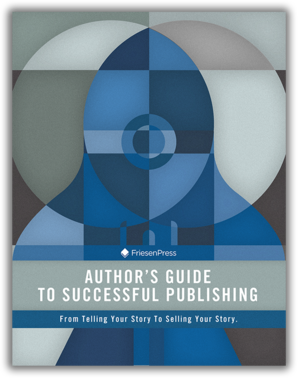How to Craft the Unique Selling Proposition for Your Book
/“Don’t forget – no one else sees the world the way you do, so no one else can tell the stories that you have to tell.”
Charles de Lint’s words are beautiful, and true – your story is yours and yours alone. But does that mean that readers will choose to read your book over thousands of others?
Unfortunately, no. It’s not quite that easy. It’s a crowded marketplace full of authors trying to catch readers’ attention. On the Internet, TV, radio, and print, messages are everywhere urging readers to give some super-amazing, award-winning, celebrity-endorsed, bestseller a try. Sometimes the din is absolutely deafening.
How do you cut through all that noise? In short: by defining a specific, resonant Unique Selling Proposition (USP) for your book.
What’s a USP?
A Unique Selling Proposition is the link between your book, your reader, and the market. It is a short statement that succinctly conveys why your reader should purchase. Your USP is not a list of what the book is about, its themes, or even its content. It goes deeper than that.
The golden rule is this: if you can replace another book's title with your own and the sentence still stands true, you need to adjust your USP.
How to craft your USP
The most important step in developing your USP is learning to think from your reader’s perspective. But before you can do that, you have to know who your readers are. Be as specific as you can (e.g., 30- to 40-year-old business professionals who wish their lives were more exciting). Think deeply about that question, do some research and write down your answers. Next, ask yourself what those readers will get from your book that is both rewarding for them and unlike the rewards they’d get from other books.
Try the following exercise to help clarify your USP:
Make a list of 15-20 keywords or phrases you might use to describe your book.
Review this list from your reader's perspective and mark which keywords or phrases are most relevant to them.
Using these keywords and phrases, create three possible USP's.
Once you are happy with your list, review each USP asking the following questions:
Can you replace the name of your book with a competing title and use the same USP? If so, keep trying.
Are you making an advertising or promotional statement or are you describing the unique aspects that make your book remarkable?
For example, if your book is a romance with plausible supernatural elements, you might come up with a USP along the lines of:
“A tale of a boy and a girl who are destined to meet, to love and to lose each other. Jumping from one universe to another and back again, Memories In The Void, is a tale of loss and redemption that will make you believe that love can change the world - even if it is not our own.”
Wherever you wind up, your USP should let your ideal readers know what kind of experience they can expect from your book.
Bonus tips!
If possible, also do this exercise with a group of friends who have read your book. They may have an easier time identifying keywords and unique aspects.
A good product solves a problem. Can you think of a problem that your book is solving?









